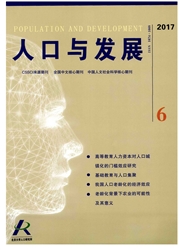

 中文摘要:
中文摘要:
采用中国家庭营养与健康调查(CHNS)1991—2009的数据,分析中国农村中小学孩童入学的影响因素,并着重研究移动电话、互联网、电视等信息技术的发展对中小学孩童入学率的影响。信息技术对于促进性别平等具有差异化的作用,电话、互联网技术的发展能显著提高女孩的入学率,促进性别平等;而电视对性别平等的推动作用不明显。信息技术主要通过提高女孩的就业机会,从而提高其教育回报率发挥作用。中国农村的教育投资决策不仅取决于教育回报率,而且受到社会性别文化的影响,男孩偏好越严重的地区,越倾向于对男孩进行教育投资。要巩固和加强基础教育领域性别平等的现有成果,一方面要继续推动信息技术尤其是电话、互联网技术的发展,另一方面要通过政策或法制的手段逐渐淡化或消除农村地区的男孩偏好。
 英文摘要:
英文摘要:
Using data from the China Health and Nutrition Survey( CHNS; 1991 -2009), this study estimates educational enrollment patterns of 7 -18 aged children ,and analyzes the contri- bution of mobile phone,internet and other information technology development to school enroll- ment of children, especially girls in rural China. The results show that phone and internet can effectively promote the school enrollment of girls, the influence of television is not significant. Although advanced gender concept has been widely spread because of the development of ICT, still can not offset the number limitation of China' s one - child policy, son - preference has not decreased during this period.
 同期刊论文项目
同期刊论文项目
 同项目期刊论文
同项目期刊论文
 期刊信息
期刊信息
